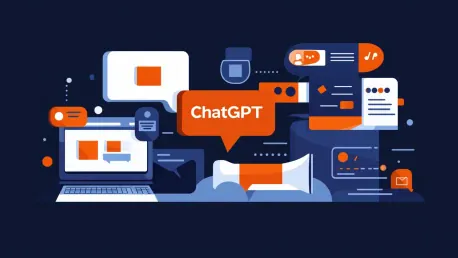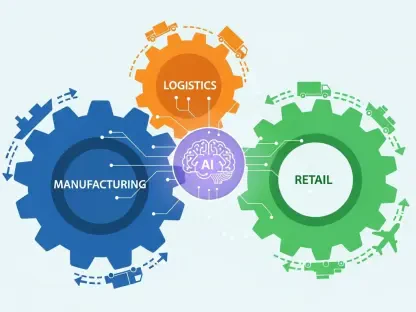The recent launch of ChatGPT Search by OpenAI has the potential to revolutionize how users seek information online, potentially replacing traditional search engines like Google for everyday queries. This groundbreaking feature leverages artificial intelligence (AI) and natural language processing (NLP) to provide a more intuitive and conversational user experience, drawing comparisons with Google’s search capabilities. As individuals become more accustomed to interacting with machines in human-like ways, the emergence of AI-driven search tools like ChatGPT Search marks a significant stride toward more efficient and personalized online information retrieval.
The Evolution of Web Search Technology
Traditionally, users have relied on search engines like Google to get timely and relevant information based on specific, keyword-focused queries. This method, while effective, often requires users to input structured sentences with precise keywords to get the best results. However, ChatGPT Search offers a more flexible approach, allowing users to phrase their searches in a more conversational, free-flowing manner and still receive accurate and detailed responses. This evolution in search technology represents a shift toward accommodating the natural way people communicate, removing barriers that keyword-centric search engines have historically imposed.
ChatGPT Search integrates web search directly into ChatGPT, providing up-to-date information complete with citations linked to original sources. This tool can be activated manually or automatically when a user’s query would benefit from web-based data. The AI comprehends the user’s intent by leveraging its NLP capabilities, thus eliminating the need for meticulously crafted search terms. By understanding context and delivering information in a conversational format, ChatGPT Search promises to make information retrieval more intuitive and less tedious for users, enhancing the overall search experience.
Key Features and Functionalities of ChatGPT Search
One standout feature of ChatGPT Search is its ability to understand and respond to natural language queries. Unlike traditional search engines, where users have to input structured sentences with precise keywords, ChatGPT allows for a more natural input style, making the search process more user-friendly. The conversational nature of the responses means users experience interactions comparable to those with an actual human, reducing the time spent sifting through multiple articles to find the needed information. This human-like interaction model marks a deliberate departure from the structured responses provided by conventional search engines, pointing toward a future where AI facilitates more fluid and dynamic information exchanges.
Additionally, ChatGPT Search provides responses complete with citations linked to original sources, ensuring that users can verify the information they receive. This feature enhances the credibility of the responses and provides a seamless way for users to access more detailed information if needed. The development of this functionality underscores the growing importance of transparency and reliability in AI-driven tools, encouraging users to place greater trust in the information provided by AI systems. By offering a robust verification mechanism, ChatGPT Search not only empowers users with accurate responses but also facilitates deeper exploration of topics via direct source links.
Practical Comparisons with Google Search
To illustrate the practical benefits of ChatGPT Search compared to Google, consider three distinct test queries. The first query, “When is Daylight saving time?”, is straightforward and both ChatGPT and Google produce nearly identical results, demonstrating that ChatGPT is on par with Google for basic queries. This shows that for routine factual inquiries, both platforms are equally equipped to provide timely and precise information, underscoring ChatGPT’s competence in handling everyday search needs.
The second query, “My friend was talking about a brunette singer-actress on Disney Channel who made a movie called Monte Carlo. Who was she talking about?” exemplifies a more conversational, less structured question. ChatGPT successfully identifies Selena Gomez and provides additional context, whereas Google’s results are less direct and require the user to interpret an excerpt from her Wikipedia page. This scenario highlights ChatGPT’s superior ability to manage complex, context-rich queries, reaffirming its advantage in understanding nuanced user inputs and delivering comprehensive, easily digestible answers.
For the third query, “plan a seven-day vacation to Ireland, where I stay mostly in the countryside,” Google’s results consist primarily of links to various web pages, whereas ChatGPT delivers a detailed day-by-day itinerary specific to the request. By adding “with links” to the prompt, the user can receive a response complete with references to relevant sites for further information or booking. This comparison underscores ChatGPT’s prowess in generating detailed, practical responses tailored to specific user needs, offering a level of customization and direct utility that traditional search engines struggle to match. Such capabilities make ChatGPT an invaluable tool for users seeking comprehensive, curated information in a streamlined manner.
Advantages and Limitations of ChatGPT Search
While ChatGPT excels in providing detailed and contextually relevant responses to conversational queries, it does have its limitations. For instance, Google remains highly effective for specific functions such as shopping and map searches, where ChatGPT currently falls short. Therefore, although ChatGPT presents a formidable alternative for general queries and personalized searches, Google still holds relevance for specialized tasks. This delineation of strengths and weaknesses indicates that while ChatGPT is pushing the envelope in many areas, it still needs to evolve further to cover all possible use cases.
Another advantage of ChatGPT Search is its ability to provide a more personalized search experience. By understanding the user’s intent and context, ChatGPT can deliver more tailored responses, making it a valuable tool for users seeking specific information or planning detailed activities. Nevertheless, despite these benefits, the need for continued improvement and expansion of functionalities is evident. Future updates may potentially bridge the existing gaps, allowing ChatGPT to encroach upon areas where Google currently excels and providing a more comprehensive search solution.
The collaborative potential of leveraging both ChatGPT’s conversational search capabilities alongside Google’s specialized functions could present users with an optimal hybrid search experience. By integrating the strengths of both platforms, users might enjoy a more holistic approach to information retrieval, maximizing efficiency and convenience.
Availability and Access
OpenAI’s recent launch of ChatGPT Search has the potential to transform how users look for information online, possibly even replacing traditional search engines like Google for routine queries. This innovative feature harnesses the power of artificial intelligence (AI) and natural language processing (NLP) to offer a user experience that is more intuitive and conversational. By making these advanced technologies accessible, ChatGPT Search invites comparisons to Google’s capabilities. As people become more familiar with interacting with machines in human-like ways, the rise of AI-driven search tools like ChatGPT Search signifies a major step toward more efficient and personalized methods for retrieving information online. This new approach could make information searching faster and more tailored to individual needs, showcasing the growing role of AI in everyday technology. The implications are enormous, as it could change the landscape of how we access information, driving innovation and competition in the field of search technology.









